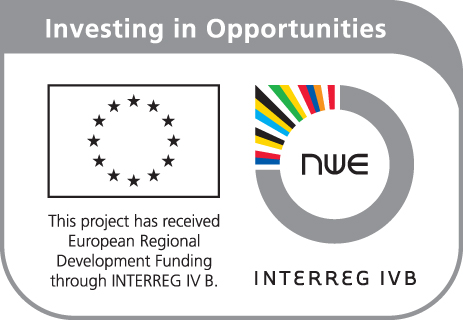
Impact on the NWE regions
COMBINE contributes to territorial development through EU2020 objectives by offering stimulation of local biomass utilisation and biofuel production. It works on decentralised biomass energy production and regional supply chains by providing adapted technology and a unique regional development approach.
The project is also directed towards rural regions in NWE that suffer from structural weaknesses and do not profit directly from structural changes and growth, some of them (Wales, Vogelsberg) not even linked to intensive agriculture.
COMBINE seeks to address some of these issues by encouraging sustainable development. It reduces the need to import fuel by using sustainably produced local fuel.
COMBINE generates local income as well as stemming the tide of money moving out.
Those regions cannot deliver high quantities of biomasses for large scale production plants. Hence decentralised, small-scale energy plants are the best choice here to explore new biomass sources and at the same time to protect the environment and natural heritage, e.g. for tourist purpose.
While other projects aiming at large quantities of biomass COMBINE will trigger smaller solutions that are also feasible for decentralised and marginalised locations.
With this approach COMBINE enables also those peripheral regions to contribute to the latest European agreement in Copenhagen on climate change to cut 20% emissions by the year 2020.
All participating regions have potential to increase biomass adoption through existing natural resources and diversify the conversion of biomass.
The project contributes to the Lisbon agenda, since it relates to an innovative procedure to produce new biofuels and utilise bioenergy production more efficiently to strengthen the competitiveness of bioenergy producers and consumers.
It supports the development of both public and private investments in large scale investments and production units run by public andprivate co-operations (e.g. production and supply co-operatives and associations as transnational clusters).
The project is based on an interdisciplinary cooperation of public bodies, private entities, research institutes and counselling bodies with long term experience in the bioenergy sector enriched by organisations specialised in regional development and capacity building in the NW European energy sector.
By this, the regional pilots in the 4 NWE regions will provide new examples on how to achieve sustainable growth by promoting a more resource efficient, greener and more competitive economy (Priority 2, EU2020).
Hence COMBINE addresses several issues of the Gothenburg agenda since it relates to:
- environmental sustainability by promoting an eco-friendly technology to increase the efficiency of bio-energy production
- utilisation of biomasses that are not used for bioenergy production before
- an increase of efficiency and the better utilisation of waste heat in waste water and agricultural AD plants the project also contributes
- to the reduction of greenhouse gases
- increasing biodiversity in abandoned grasslands (Vogelsberg) and on roadside verges (Brittany and Flanders), as well as in areas dominated by endemic species (e.g. bracken in Wales) by fostering nature-friendly and nature-conserving harvesting techniques, hence contribution to nature and water protection and
- the production of an additional storable biofuel through which the project promotes a cleaner production and consumption
